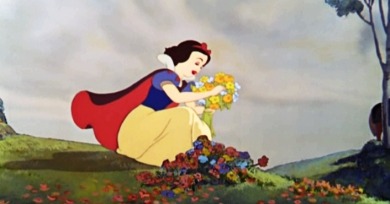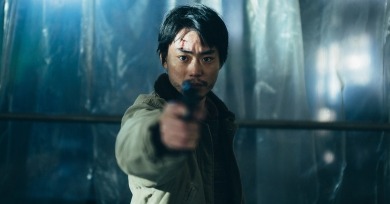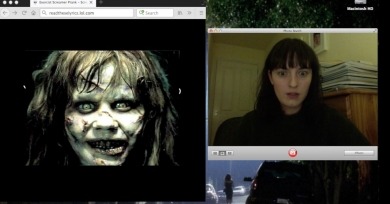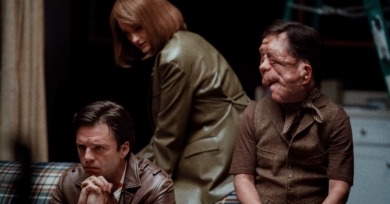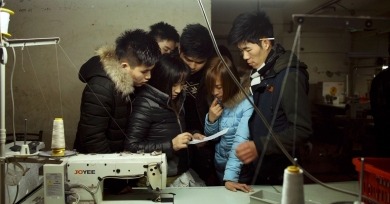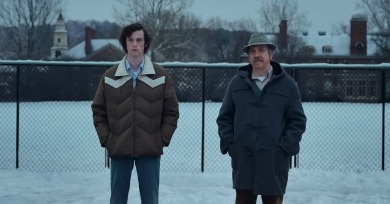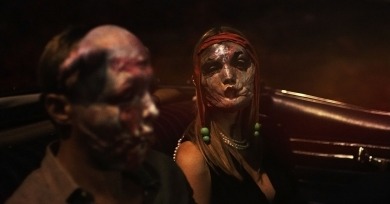Dan Schindel
The history of these tools and the concurrent development of new animation techniques demonstrate how closely artistic concerns and technical logistics are married in filmmaking. The multiplane camera is also an effective synecdoche for the system Walt Disney molded his studio into.
Even if you get good at walking, the ragdoll physics on which the game is based will continue to plague you. They are deliberately imprecise, and there’s no guarantee that moving in a certain way will produce an identical outcome each time.
These games represent the beginning of a new era in Kojima’s output. With Death Stranding, Kojima affirmed that he would be doubling or tripling down on conceptual oddness.
Hamlet is invoked as a familiar revenge-plot classic, but that premise is mere window dressing. The characters from the play bear little resemblance to how they are written in it here, and are mostly marginal anyway, leaving the movie more like fanfiction than a seriously considered retelling.
Like Pulse, the film’s conceit imagines a nightmare scenario in which an aspect of technologically modulated human interaction—here, online harassment—breaches the borders of reality.
The aesthetic looseness feels like an appropriate evocation of the anything-goes sensibility of childhood, as well as the pedagogical nature of the educational milieu.
While the screenplay might not properly evince the feeling of being an expendable, Robert Pattinson perfectly portrays someone who has thoroughly internalized their mortality.
The rise of affordable filmmaking tools, the internet, smartphones, and social media platforms have led to many words written in the 21st century about the broadening power to create and distribute cinema. In parallel, there has been a related but less-discussed rise in the essay film.
Touching the Screen
The way we see a game—whether we can control the camera or not, whether the frame moves or is static, how the frame moves—is an artistic quality as important as (and often interlocked with) its interface, its methods of immersion...
Schimberg has furthered his incisive dissection of the cinematic representation of disfigurement and disability. Adam Pearson returns as a lead in A Different Man—in which he not only gets to be effortlessly charming but even plays the Chad to another character’s Beta.
It is remarkable how many common prequel issues Miller and co-writer Nick Lathouris are content to sidestep entirely. Furiosa has almost no meta-shibboleth winks to fans or superfluous cameos.
Touching the Screen
Reverse Shot’s first-ever year-end games roundup.
While hardly the sole practitioner of deadpan cinematic whimsy, Kaurismaki can push his methods close to magical realism; his little stories about ordinary people swing tremendous emotional heft.
Each year, around 300,000 migrant laborers come to Huzhou, a major textile hub in eastern China, seeking jobs at 18,000 different small workshops. From 2014 to 2019, filmmaker Wang Bing embedded himself in the population there. By his reckoning, he and his crew shot 2,600 hours of footage.
The Holdovers feels less like a return to form than a retreat to safety. Its initial pretenses of unpleasantness mostly feel like winks at the audience.
If Breath of the Wild found new possibilities for player choice in exploration, Tears of the Kingdom offers enticing glimpses of what is to come as game designers rise to meet the challenge of endlessly creative audiences.
In a not-too-distant future Japan, Plan 75 is a government program which offers people over the age of 75 a token monetary incentive to accept euthanasia, suggesting it is their civic duty to cease burdening the country.
Brandon Cronenberg tends to confine transformation to the imaginary realm. For him, the body is but a plaything of the mind. This has produced some striking visuals, but they fail to linger, couched somewhat safely in their unreality.
The camera is frequently in motion, shifting elements like characters, animals, vehicles, and terrain in an intricate dance. Despite the impossibility of the otherworldly imagery, every shot feels like it comes from an actual camera perspective, which lends the film its verisimilitude.
With this film, Hong and company reflect on how, in middle age, they have willingly submitted themselves more to the potential of randomness in their art.
